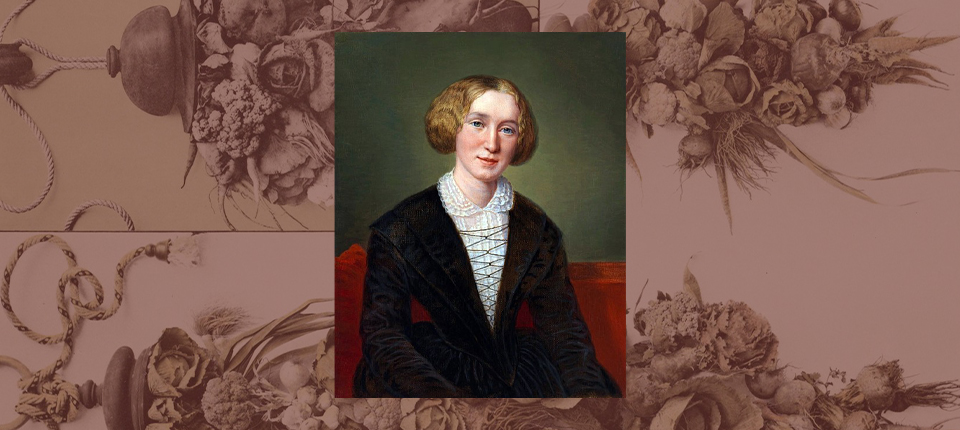The Best of the Literary Internet, Every Day

TODAY: In 1869, George Eliot starts writing Middlemarch.
- What happened when Piers Gelly tried to replace himself with AI? “Far from being nihilistic, take-no-prisoners cheaters, my students seemed genuinely confused. I could work with confused.” | Lit Hub Technology
- “If God were like Chekhov, I would be consoled.” Philip Metres on Gaza, wildfires, and the privileges of misery. | Lit Hub Politics
- Meg Pillow explores the legacy of actress Lana Clarkson and unpacks the archetype of the Promising Young Woman. | Lit Hub Criticism
- Four graphic memoirists discuss what cartooning motherhood and why “parenting often just feels beyond language.” | Lit Hub Art
- Carolina Ana Drake reports on how the artists of the Florida Everglades are fighting back against the proposed “Alligator Alcatraz.” | Harper’s Bazaar
- “If it happens to a writer, the struggle to turn the experience into language mirrors the abortion itself, bringing whatever it means out of the body and into the light.” On how to write an abortion story. | Lux
- John Darnielle offers a remembrance of Ozzy Osbourne. | Pitchfork
- Angelo Hernandez Sias on the “cursed” attempts at translating José Donoso’s The Obscene Bird of Night. | n+1
- Raina Telgemeier and Scott McCloud discuss creative community building and encouraging the next generation of cartoonists: “The blank page to me is a pretty powerful symbol for what it’s like to be a kid who’s just beginning to create a rough draft for their own world.” | The Comics Journal
- Richard Brody makes the case for the traditional review, calling it “the most inherently progressive mode of arts writing.” | The New Yorker
- “What freshly nuanced perspectives might we bring to the violent late 20th-century history Coetzee describes?” A roundtable on J.M. Coetzee’s Disgrace at 25. | Public Books
- Why the future of climate change is the present in Mauritius: “When the government told us to go back home it was already too late. Throughout the town water rose to our knees, our thighs.” | The Dial
- Rachel Kushner considers the relationship between literature and prison. | New York Review of Books
- Daniel Felsenthal considers a new collection of Essex Hemphill’s poetry and his “liberationist spirit.” | The Nation
- “Despite their differences in practice and philosophy, these authors all shared something—a desire for self-sufficiency, yes, but also their yearning.” On Jean Craighead George and Thoreau. | Orion
- Zhang Yueran and Wei Hui discuss censorship, artificial autobiography, and tradition. | Granta
- Read Marguerite Duras’s account of producing her 1979 film, Le Navire Night: “I believe the film was no doubt surplus, too much, thus unnecessary, useless.” | The Paris Review
- Henry Louis Gates Jr. examines Jamaica Kincaid’s radical penchant for “assuming the blackness of her characters without saying so.” | New York Review of Books
- Ed Park writes about Buffalo’s infamous Blizzard of ’77 and the board game it inspired, in which “travel is entirely local and maddeningly static.” | Graywolf Lab
Also on Lit Hub:
The interconnectedness of identity, erasure and language • The universal power of artistic practice • The enduring legacy of Harold and the Purple Crayon • The disruptive poetry of Jayne Cortez • Consumerism and colonial power in the 18th-century Caribbean • Read “On Bilocation,” a poem by Remi Graves • Ed Park tells us about the strudel from Zabar’s • Eric Olson profiles Ed Park • Kate Weinberg on the first time she told a lie • On Daniel Saldaña Paris’s TBR • How medical misogyny impacted the practice of neuroscience • These are July’s best book covers • The literary film and TV coming in August • Jessie Gaynor interviews Eric Puchner • July’s best reviewed books • The most anticipated audiobooks in August • This month’s new sci-fi and fantasy titles • The children’s books arriving this month • Amy Silverberg’s TBR • 5 book reviews you need to read this week • Christopher Spaide recommends new poetry collections • Books out in paperback this month
